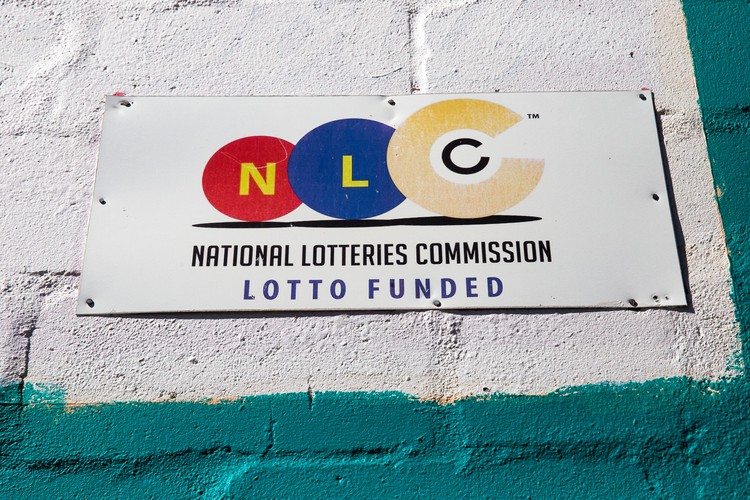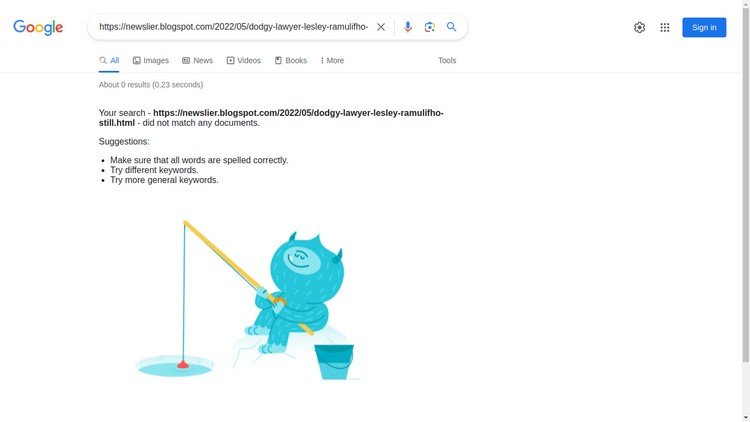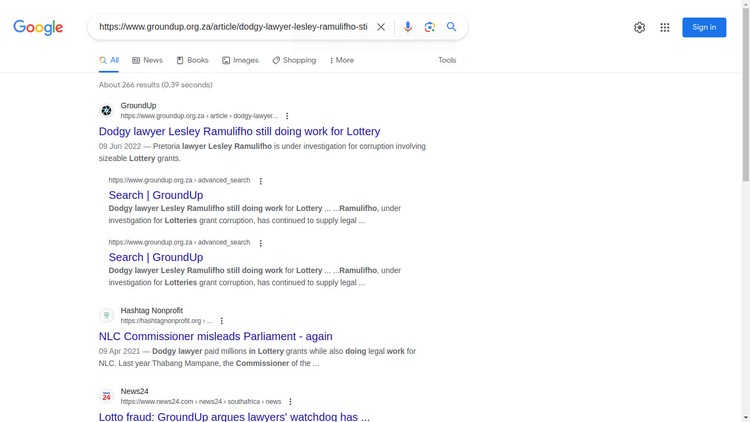GroundUp told to remove Lottery article following fake copyright claim
If we don’t remove the article access to our website may be blocked
An attempt is being made to censor GroundUp’s coverage of Lottery corruption. Archive photo: Ashraf Hendricks
GroundUp has received an instruction from its US-based internet hosting service to take down one of its own stories about dodgy lawyer Lesley Ramulifho after it received a breach of copyright complaint.
Failure to comply would result in access to GroundUp’s website being restricted, GroundUp was warned in an email from Akamai Cloud Computing Services.
“You must remove access to the material immediately. If you do not, Linode [GroundUp’s web server host, recently bought by Akamai] must remove or disable access to the material expeditiously under federal law; this will require us to place restrictions … in 96 hours unless you comply.”
The 96 hour deadline is early Monday morning. GroundUp will not be removing the article. If our site goes down at that point it will likely be because Akamai has taken it down. Should that happen it will take us several hours to bring our site up with a different service provider.
The complaint against GroundUp was made under the US Digital Millennium Copyright Act (DMCA), a law meant to protect copyright holders. But instead, it is being used to muzzle journalists, the BBC reported recently.
The DMCA is an amendment to the United States copyright laws and was meant to address the challenges brought about by new technologies. It became effective in October 2000 and effectively orders service providers to immediately act and not wait for lengthy court processes to unfold.
In the last few years the legislation has been exploited by criminals to hide details of their activities. In March this year the Organized Crime and Corruption Reporting Project (OCCRP) reported how bogus copyright infringement complaints were being used to remove critical reporting from the internet. The companies hosting the news websites are forced to act, and there is no requirement to first check whether the complaint is legitimate. This resulted in “articles being taken offline for weeks at a time. Complainants, sometimes using fake identities, post and backdate fake articles on which to base their claims,” OCCRP reported.
The story published by GroundUp is part of an ongoing investigation into the looting of the lottery. It was published on 9 June 2022, a few days after questions were sent to Ramulifho and the National Lotteries Commission (NLC) asking why, despite Ramulifho being under investigation for corruption involving sizeable Lottery grants, he continued to supply legal services to the NLC.
The complaint against the story was laid by someone identified as Marcello Gianferotti, who supplied an address in Australia with his complaint.
Included with the email to GroundUp was a link to a blog called News Lier, where GroundUp’s story is published under Gianferotti’s byline and dated 30 May 2022, giving the impression that it is the original publication.
GroundUp has copies of emails with questions relating to the story sent to Ramulifho and the NLC on 6 June, three days before our story was published. The fact that these emails were sent and that no response was received to them is reflected in the GroundUp story - and also in the fake one, supposedly published more than a week earlier.
When Lesley Ramulifho was contacted this week, he denied that he had laid the complaint and said: “I know nothing about this, I highly recommend you ask the individual concerned.”
When told that the story was about him and he was the only person who would have a motive to lay the complaint, Ramulifho responded: “I couldn’t care less about articles written about me. There are thousands.”
Another story published under Gianferotti’s name on the same blog is a direct lift of a story by Jamie Lopez, a British reporter for the Lancashire News. The report is about the conviction for fraud of a local man. Lopez’s story was published on 16 April 2023, while Gianferotti’s rip-off of it is dated 14 April. It is not known whether Lopez’s publication was also served with an order to take down their own story.
Why a person ostensibly living in Australia would publish stories from South Africa and Preston in England on his obscure blog is unclear.
There is no evidence that the fake article was published on the date that it claims.
There are multiple other red flags with the story that would assure any reasonable person that it is a copy of the GroundUp one.
- The article is published on Blogger, a blogging platform owned by Google (Alphabet). Blogger easily allows you to change the publication date on your post. By default the HTML of such articles will include the real timestamp of when the article was posted, but this too can be removed, as has been done in this case.
- The story is not on the WayBackMachine, which continually scrapes the internet and archives websites and pages. Even the front page of his blog is not on WayBackMachine.
- There are no backlinks on the internet to the fake article. There are at least four backlinks to GroundUp’s article.
- If you paste the link to the fake article into Google it doesn’t find it. But pasting the link to GroundUp’s story into Google gives the exact date it was published.
- There is no obvious reason why an Italian- or Spanish-language writer supposedly based in the small town of Bushgrove in New South Wales, Australia, would write about a South African lawyer and post it on an obscure blog where it then sat unindexed for over a year.
- Moreover Raymond Joseph, the author of the GroundUp article, has for years been reporting on the NLC and Lesley Ramulifho. He has received several awards for this work. There is no record whatsoever of a Marcello Gianferotti doing so.
Searching for the fake article’s URL using Google brings up no results (this will very likely change shortly after publication of this article). If you use DuckDuckGo, the fake article does not appear in the search results, but GroundUp’s article appears as the first search result.
Searching on Google using GroundUp’s URL brings up 266 results.
Who is Marcello Gianferotti?
We emailed “Marcello Gianferotti” (the address gianferottimarcello@gmail.com was provided in the takedown notice) but we received no response. We found a rather interesting Marcello Gianferotti but he has not responded to our email asking if he is the same person. Currently we have no compelling reason to believe he is.
GroundUp, on Thursday, filed a copyright infringement with Google against Gianferotti’s article but it has not been processed yet and at the time of writing the article is still up.
Previous takedown orders
GroundUp has previously received a notice to take down stories relating to Ramulifho but refused.
Both GroundUp and the Limpopo Mirror have in the past received emails from a person named Beatriz Aguinaga who is with a company called the Eliminalia Group, claiming to act on behalf of Ramulifho. The emails requested us to remove mention of Ramulifho in our articles “in order to maintain my clients privacy rights”.
You can read about Eliminalia’s reputational issues on Wikipedia.
Lotto looters also target other publishers
The Limpopo Mirror, which has played a key role in exposing lottery corruption, also recently received a notice to take down a Lottery story about how the noose was tightening on people involved in looting the lottery.
Zoutnet CC, the publisher of Limpopo Mirror, received the DMCA copyright complaint via international hosting company, Cloudflare, in April this year. The person complaining was Ariel Lex, supposedly from San Sebastian de los Reyes in Madrid, Spain. Lex claimed that the original article was published on the blogging platform Tumblr, and Zoutnet’s article was an infringement of their copyright. As with the complaint against GroundUp, the fake story was dated earlier than the genuine story.
Lex had no social media profile, used a Gmail address and there was no interaction from other users on his blogging account, suggesting it was either brand new or a fake account.
Zoutnet responded and disputed the breach of copyright claim, and pointed out that its article was part of a series of reports dating back to 2017 about Lottery corruption in South Africa.
“It would be extremely unlikely that a person living in Spain, with no track record of being a journalist, would write a specialist investigative piece about happenings in the Vhembe region of South Africa,” Zoutnet told Cloudflare and pointed out that it was easy to backdate blog posts on Tumblr, the site where the stolen story was published. Cloudflare took no further action and didn’t remove access to the article.
Zoutnet also filed a DMCA complaint of copyright infringement with Tumblr, which then removed the story. The person who uploaded it was told that they could challenge the removal. It never happened and Ariel Lex seemingly disappeared from Tumblr.
But the complaint against Limpopo Mirror may be indicative of a problem where international legislation is being abused to muffle South African publishers.
The DMCA complaint against Limpopo Mirror’s article was filed within two weeks of Zoutnet moving its Domain Name Server (DNS) to Cloudflare. Previously they used the South African service provider where their content is hosted, as DNS. Cloudflare, however, offers additional security measures, and gives better protection against denial-of-service attacks.
Unlike with the DMCA, where there is a limited onus to check the legitimacy of complaints, the South African Law makes it more difficult to file a bogus complaint. Section 77 of the Electronic Communications and Transactions Act of 2002 (ECT Act) deals with take-down notices. Among others it prescribes that take-down notifications must be in writing, addressed to the Internet Service Provider (ISP) and must include the full name and contact details of the complainant and it must be signed. A person who lodges a notification which knowingly and materially misrepresents the facts, is liable for damages for wrongful take-down.
In South Africa the take-down notice procedure is handled by the Internet Service Providers Association (ISPA), an industry organisation that was formed in 1996. Once the ISPA receives a complaint, it will be forwarded to the ISP who is hosting the allegedly unlawful content. The ISP then needs to give the owner of the infringing content a ‘reasonable’ period (normally four business days) to remove the content.
If the owner of the content objects to the material being removed, the ISP needs to investigate further (before disabling access to the content). The ISP needs to consider the various rights at play, which include the damage it will cause to the website owner and the right to freedom of expression.
“Legally there is no general obligation on [an ISP] to monitor client content or actively seek facts or circumstances to indicate unlawful activities. But you may not knowingly host unlawful content,” writes Cape Town based corporate law firm, Michalsons Giles Inc, in an article dealing with take-down notices and the ECT Act.
In 2019, the Mail & Guardian received a notice from Linode to remove a story about Njock Ayuk Eyong, a lawyer who was chosen to be part of the multibillion-rand South Sudan oil deal South Africa signed earlier that year. The Mail & Guardian’s site was subsequently shut down, temporarily, in what the newspaper described as “an action amounting to media censorship”.
We sent a letter from our lawyer to Linode on Friday. On Friday afternoon Linode contacted us to say:
"We understand your concerns here and want you to know that we have escalated this ticket for review by our Trust & Safety Team. In the meantime, we will not be taking any administrative action on your website."
Next: Inmate Teboho Molemohi was murdered in Mangaung prison. His mother was never told what happened
Previous: Long delays at Home Affairs mean refugees are missing out on social grants
© 2023 GroundUp. This article is licensed under a Creative Commons Attribution-NoDerivatives 4.0 International License.
You may republish this article, so long as you credit the authors and GroundUp, and do not change the text. Please include a link back to the original article.
We put an invisible pixel in the article so that we can count traffic to republishers. All analytics tools are solely on our servers. We do not give our logs to any third party. Logs are deleted after two weeks. We do not use any IP address identifying information except to count regional traffic. We are solely interested in counting hits, not tracking users. If you republish, please do not delete the invisible pixel.





